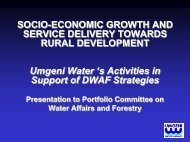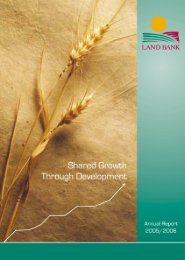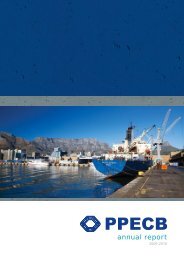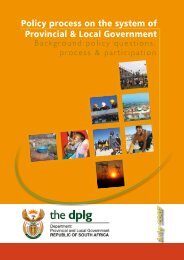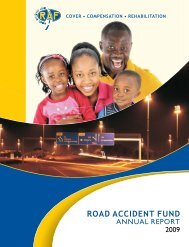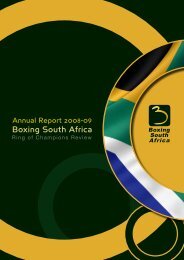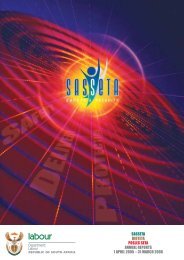Academy of Science South Africa 2005/6 Annual Report
Academy of Science South Africa 2005/6 Annual Report
Academy of Science South Africa 2005/6 Annual Report
- No tags were found...
You also want an ePaper? Increase the reach of your titles
YUMPU automatically turns print PDFs into web optimized ePapers that Google loves.
ASSAfMulti-year Strategic PlanASSAf could create a focus area in the “public understanding <strong>of</strong> science”, in partnership with SAASTAand other organisations, also in order to involve the public in policy making based on scientificevidence.Threats to ASSAfThe <strong>Academy</strong> has a very fragile niche in the current <strong>South</strong> <strong>Africa</strong>n science system (the NSI) in thatit is a newcomer. (Part <strong>of</strong> the non-recognition experienced by ASSAf to date has arisen from coldshoulderingby potential or real competitors rather than from poor communication.) It has a patchytrack record in comparison with its obvious competitors, and has not managed to persuade the preexistingquasi-academies to quit the terrain. Accordingly, organisations such as NACI, the HSRC andother science councils could prevent ASSAf from realising its mission and effectively “starve” it <strong>of</strong>worthwhile commissions.ASSAf’s resource base is very dependent on the goodwill and judgement <strong>of</strong> a government departmentthat is now under the direction <strong>of</strong> a new Director-General. Although the present Minister has beenvery supportive, political change may come with a newly elected government in 2007.ASSAf may fail to “protect” its independent branding in the new DST Building on the CSIR campusand become progressively less able to remain a merit-based, self-perpetuating, internationallyrecognised science academy, also losing its natural constituency <strong>of</strong> top scholars in the process.ASSAf may be “out-competed” by the RSSA in terms <strong>of</strong> (out-<strong>of</strong>-date but still highly prevalent) publicperceptions ( especially the perceptions <strong>of</strong> its base public <strong>of</strong> scholars and scientists) <strong>of</strong> what a scienceacademy should in fact do, or even what “science” is.ASSAf may fail to establish the necessary effective inter-connections with government departments,continental bodies (e.g. NEPAD) and sister science academies in <strong>Africa</strong>, and lose momentum in itschosen trajectory.Because <strong>of</strong> its relatively poor lobbying position and unconnectedness in government and related78 Promoting Excellence in <strong>Science</strong> for Society


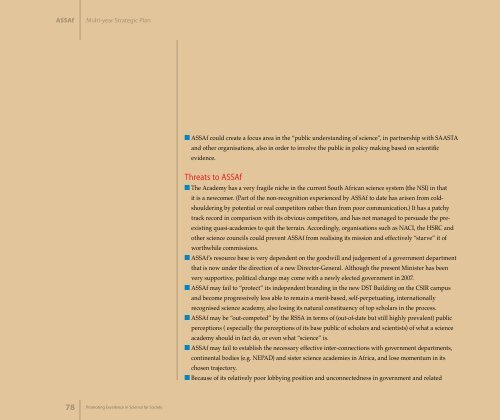
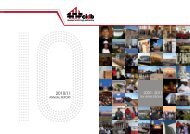
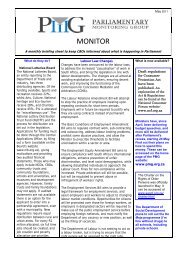
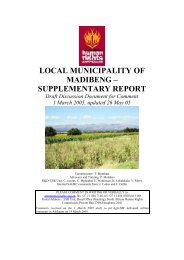
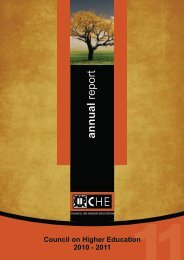
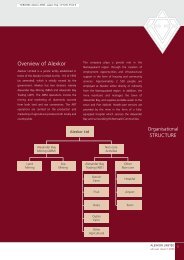
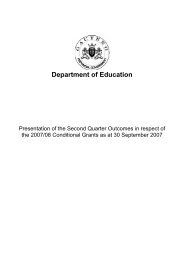
![National Research Foundation Annual Report 2008 / 2009 [Part 2]](https://img.yumpu.com/49774036/1/177x260/national-research-foundation-annual-report-2008-2009-part-2.jpg?quality=85)
